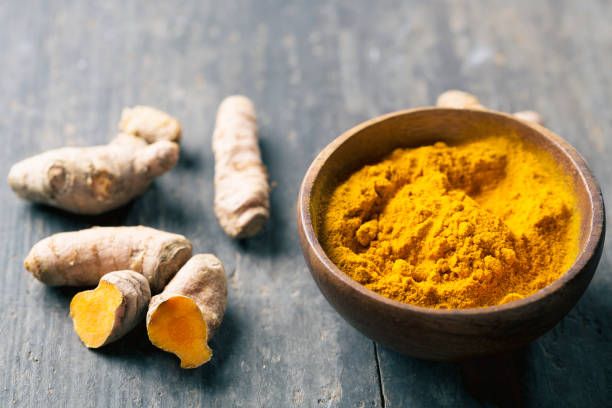10 Health Benefits of Turmeric And Curcumin
Turmeric has been shown in several high-quality studies to provide significant health advantages for both the body and brain. Curcumin is the major active component of turmeric and many of these benefits are due to its activity...

Turmeric may be the most beneficial nutritional supplement ever discovered. Turmeric has been shown in several high-quality studies to provide significant health advantages for both the body and brain. Curcumin is the major active component of turmeric and many of these benefits are due to its activity.
Page Contents
Read on to learn what the science says about turmeric and curcumin as well as their benefits.
What Exactly Are Turmeric And Curcumin, And How do They Work?
Turmeric is the spice that gives curry its distinctive yellow hue.
Turmeric has been used in India for thousands of years as both a spice and a medicinal plant. Scientists are now beginning to back up traditional assertions that turmeric contains chemicals with therapeutic effects.
Curcuminoids are a type of antioxidant that break down cell walls and inhibit damage from oxidation (free radicals). The most significant one is curcumin.
Turmeric's primary active component is curcumin. It has strong anti-inflammatory effects and is a highly effective antioxidant.
Here are the top 10 health advantages of turmeric and curcumin, based on evidence.
1. Bioactive Compounds Found in Turmeric Have Medicinal Applications
Turmeric, on the other hand, has a relatively low curcumin content. It's about 3 percent by weight. Most studies on this herb use turmeric extracts that contain mostly curcumin, with dosages ranging from 1 gram to over 100 grams per day.
It would be tough to reach these quantities just by adding turmeric to your meals. That is why certain people prefer to take supplements.
However, curcumin is poorly absorbed by your body. To get the full benefits of curcumin, its bioavailability (how well your body absorbs it) needs to improve.
It's best to take it with black pepper, which contains piperine. Piperine is a natural substance that improves curcumin absorption by 2,000 percent.
Piperine, on the other hand, appears to enhance curcumin's absorption significantly.
Curcumin is fat soluble, which means it dissolves in fat or oil. That's why taking curcumin supplements with a meal rich in fat may be a good idea.
2. Curcumin is a Potent Anti-Inflammatory Agent That Comes From Nature
Inflammation is critical. It aids in the defense of the body against external attackers and promotes healing following injury.
Excess inflammation, on the other hand, might be harmful in the long term since it can damage your own tissues.
Scientists believe that chronic low-level inflammation may contribute to several health problems and illnesses.. These include:
- heart disease
- cancer
- metabolic syndrome
- Alzheimer’s disease
- various degenerative conditions
That is why all things that can aid in the prevention and treatment of chronic inflammation are potentially beneficial.
While there is no simple solution to inflammation, the major takeaway from curcumin is that it is a bioactive substance that can combat inflammation. However, high dosages are required in order to achieve therapeutic benefits.
3. Turmeric Can Boost The Body's Antioxidant Defenses
Oxidative damage is thought to be one of the causes of aging and a variety of illnesses.
Free radicals, highly reactive molecules with uncharged electrons, are the cause. Free radicals react with important organic compounds such as lipids, proteins, and DNA.
Antioxidants are particularly important because they shield your body from free radicals.
Turmeric has a unique chemical structure that allows it to act as an antioxidant.
Furthermore, animal and cell studies indicate that curcumin may prevent free-radical activity and increase the activity of other antioxidants. Additional clinical research in humans is required to determine if these advantages are true.
4. Curcumin Has Been Shown to Enhance Brain-Derived Neurotrophic Factor
It was once thought that neurons could not divide and proliferate after early childhood, thanks to a lack of knowledge about them. However, they now know that this isn't the case.
Neurons are able to form new connections and, in certain regions of the brain, they may double and flourish.
Brain-derived neurotrophic factor (BDNF) is one of the most important factors behind this process. This is a gene that codes for a protein that helps neurons live longer.
The brain-derived neurotrophic factor (BDNF) protein is crucial for memory and learning, and it may be found in the eating, drinking, and body weight regions of the brain.
Depression and Alzheimer's disease are examples of common brain conditions that have been linked to decreased BDNF protein levels.
Curcumin appears to increase brain BDNF levels in animal studies, which is interesting.
This method may help to stave off or even reverse several brain disorders and age-related cognitive decline. However, because these research were performed on animals, it's difficult to know what the findings signify for people.
Some studies suggest that exercise may help improve memory and attention. This is because exercise may increase levels of a chemical called BDNF. However, more research is needed to confirm this.
5.Curcumin Might Protect You From Developing Heart Disease
Heart disease is the world's leading cause of death. It has been studied for many years and a lot has been learned about its causes. Heart disease, of course, is a complicated issue with a variety of causes.
Curcumin has been shown in studies to assist with the prevention and treatment of many components of heart disease.
The ability of curcumin to enhance the function of the endothelium, or vascular lining, may be its most significant advantage in terms of heart disease.
Endothelial dysfunction is a key cause of heart disease. This occurs when the endothelium, which regulates blood pressure, blood clotting, and other functions, is unable to do so.
According to a number of research, curcumin can help prevent heart disease. Furthermore, one trial discovered that it is as beneficial as physical activity in postmenopausal women.
Curcumin also has antioxidant activity and can help reduce inflammation and oxidation (as previously said), which may be linked to heart disease.
In a 2012 study of 121 patients who had coronary artery bypass surgery, participants were given either a placebo or 4 grams of curcumin daily for several days before and after the operation.
In the hospital, curcumin users had a 65% decreased risk of having a heart attack.
6. Turmeric May Aid in Cancer Prevention
Cancer is an illness in which cells grow uncontrollably. Curcumin supplements seem to have an effect on a number of different sorts of cancer.
Turmeric has been tested for its usefulness as a therapeutic herb in the treatment of cancer and has been found to have an effect on cancer development and progression.
Studies have shown that it can:
- contribute to the death of cancerous cells
- reduce angiogenesis (growth of new blood vessels in tumors)
- reduce metastasis (spread of cancer)
The question of whether high-doses of curcumin, especially with piperine as an absorption enhancer, can help cure cancer in people is yet to be investigated thoroughly.
However, there is evidence that it lowers the risk of developing cancer. The strongest evidence comes from studies on rats and mice. However, there is scientific evidence that it can prevent stomach cancer in people by lowering the levels of a chemical called HCA (hydroxycitric acid).
In a 30-day trial in 44 individuals with colon cancerous lesion, 4 grams of curcumin per day reduced the number of malignant lesions by 40%.
7. Alzheimer's Disease Could be Treated With Curcumin
Alzheimer's disease is the most prevalent form of dementia, accounting for up to 70% of cases.
Alzheimer's disease cannot be cured just yet, despite the fact that many of its symptoms go away over time. That is why preventing it from happening in the first place is so crucial.
There may be some good news on the way because curcumin has been found to permeate the blood-brain barrier.
It's clear that inflammation and oxidative damage aggravate Alzheimer's disease, and curcumin has positive effects on both.
Alzheimer's disease, in particular, has a strong presence of protein tangles called amyloid plaques. Curcumin has been shown to aid in the removal of these plaque deposits.
The effects of curcumin on stopping or even reversing the development of Alzheimer's disease in people are unknown and must be researched.
8. People Who Suffer From Rheumatoid Arthritis (RA) May Benefit From Curcumin Supplements
Arthritis is a prevalent ailment in Western countries. Arthritis comes in many varieties, the most common of which are inflammation of the joints.
Given the anti-inflammatory capacity of curcumin, it's reasonable to assume that it may aid with arthritis. In fact, several research have found a link.
In people with rheumatoid arthritis, curcumin was found to be more effective than an anti-inflammatory medication in a study.
Other research have looked at the benefits of curcumin on arthritis and found improvements in a variety of symptoms.
9. Curcumin Has Been Shown in Studies to be Helpful Against Depression
Curcumin has shown promise in the treatment of depression.
In a clinical trial, 60 persons with depression were assigned to three groups. One group received Prozac, the second took curcumin in tablet form, and the third took both drugs.
After 6 weeks, curcumin resulted in comparable gains to those seen with Prozac. The group that took both Prozac and curcumin improved the most.
According to this little research, curcumin works similarly as an antidepressant.
Depression is also connected to lower levels of brain-derived neurotrophic factor (BDNF) and a smaller hippocampus, which has an important function in learning and memory. Curcumin may assist to enhance BDNF levels, potentially reversing some of the changes.
There is also some evidence that curcumin improves brain neurotransmitters such as serotonin and dopamine.
10. Curcumin May Aid in The Prevention And Treatment of Age-Related Chronic Illnesses
Curcumin's potential for improving longevity may be based on the fact that it can help prevent heart disease, cancer, and Alzheimer's disease.
This implies that curcumin has the ability to delay aging.
Given that oxidation and inflammation are considered to contribute to aging, curcumin may have a variety of benefits.
Conclusion
Turmeric and, in particular, its most active component, curcumin has been shown in studies to have a variety of health advantages, including the potential to improve heart health and reduce the risk of Alzheimer's disease and cancer.
It's a powerful anti-inflammatory and antioxidant. It may also aid in the treatment of depression and arthritis.
Although these advantages are conceivable, they are currently limited by curcumin's low bioavailability, and additional study is required.

